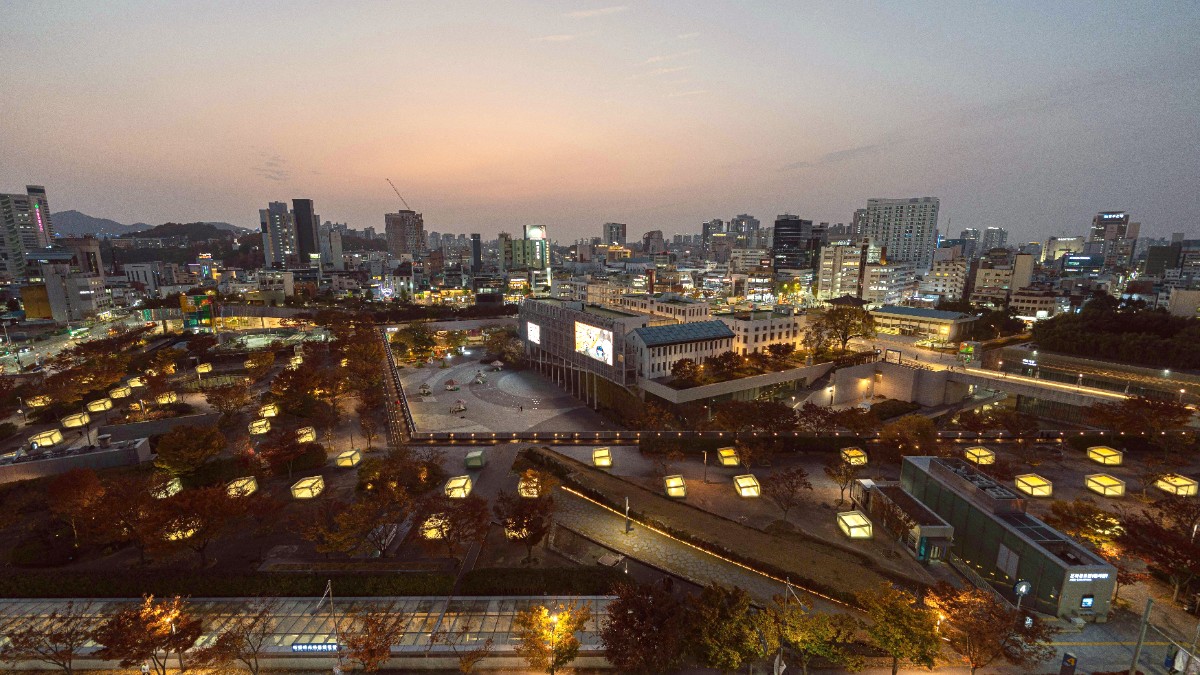
Jeollanam Do, South Korea
Gwangju is a testament to resilience and beauty, a place for visitors to glimpse Korean culture, both past and present. It is a destination for those who seek more than common tourist sights, connecting with a place of powerful stories and welcoming people. Prepare for an immersive journey where every corner is a piece of a rich narrative, waiting for discovery.
Gwangju's charm comes from its location in the southwestern part of South Korea. It is the leading city for commerce, government, and arts in the Jeolla region, often called Honam. While Gwangju operates as its own metropolitan area, Jeollanam-do Province completely surrounds it. This positioning gives Gwangju an unique character, blending urban development with easy access to the natural beauty of the wider province.
The Gwangjucheon Stream winds through the city, offering green spaces and walking paths. To the east, Mudeungsan Mountain National Park rises, a prominent natural landmark. Its proximity offers a practical escape for hiking enthusiasts and those seeking a peaceful retreat. The geographical coordinates place it within a temperate climate zone, contributing to distinct seasonal changes.
During the Joseon Dynasty, Gwangju flourished as a prominent center for artistic and cultural development. This era fostered traditional Korean arts, leaving a legacy of creative expression. Pansori, a traditional Korean opera form, and Namdo Sori, folk songs specific to the Jeolla region, trace their roots and refinement to this area. These art forms are living traditions, performed and celebrated in Gwangju, a direct link to the city's deep cultural past.
The defining historical event for Gwangju, and modern South Korea, is the Gwangju Democratization Movement of 1980. This event, sometimes called the May 18th Gwangju Uprising, is a powerful testament to the city's courage and commitment to democratic ideals. Citizens rose against the military government, demanding democratic reforms. The brutal crackdown by government forces resulted in tragic loss of life. These sacrifices resonated across the nation, inspiring subsequent pro-democracy movements and leading to democratic freedoms enjoyed today.
A solemn place of remembrance for victims of the uprising, its design encourages reflection.
A focal point for citizen gatherings during the uprising, now a place for public remembrance.
A sprawling complex hosting contemporary art exhibitions, performances, and cultural programs.
Features smaller galleries and art installations, reflecting the city's artistic pulse.
Historic alleys contributing to the city's artistic environment.
Gwangju, South Korea's sixth-largest metropolitan city, presents itself as a modern urban center that balances its historical and cultural heritage with a forward-looking perspective. It is a city that embraces progress while honoring its past, creating a distinctive atmosphere. This artistic pulse is evident in institutions like the Asia Culture Center (ACC), a sprawling complex that hosts contemporary art exhibitions, performances, and cultural programs from across Asia.
The Jeolla region, including Gwangju, boasts a reputation as the "gastronomic capital" of Korea. The food here is known for generous portions, diverse array of side dishes (banchan), and rich, bold flavors. Local ingredients are at the heart of Gwangju's culinary excellence. Signature dishes like Gwangju Tteokgalbi (grilled short rib patties) and Ori Tang (duck soup) showcase the region's unique culinary approach.
A strong spirit of democracy and human rights defines Gwangju. This spirit, born from the May 18th Democratization Movement, permeates the city's civic life. Gwangju is not simply a location of a historical event; it embodies the ideals of freedom and justice. This commitment is visible in its memorials, educational centers, and the general open-mindedness of its people.
For the traveler, Gwangju is a multi-layered experience. It is a place to appreciate stunning natural landscapes, immerse oneself in a thriving arts community, savor some of Korea's best food, and gain a profound understanding of modern Korean history. The city's inviting atmosphere encourages exploration, whether wandering through historic alleys, hiking on Mudeungsan, or enjoying a traditional meal. Gwangju moves at a comfortable pace, a reprieve from the intense energy of larger cities while still providing all the conveniences of a major urban center. This combination of historical depth, cultural richness, and modern comfort helps ensure a lasting impression.
Gwangju is South Korea's sixth-largest metropolitan city. It presents itself as a modern urban center that balances its historical and cultural heritage with a forward-looking perspective. This artistic pulse is evident in institutions like the Asia Culture Center (ACC) and the city's widespread recognition for its delicious Jeolla cuisine.
A strong spirit of democracy and human rights also defines Gwangju. This commitment is visible in its memorials, educational centers, and the general open-mindedness of its people. The city often hosts international events and festivals that promote peace, democracy, and cultural understanding, reflecting its dedication to values.
Home to the Asia Culture Center and numerous galleries, Gwangju is a dynamic space that fosters creativity and exchange.
The Jeolla region's renowned cuisine, with generous portions and bold flavors, is a highlight in Gwangju.
The city embodies ideals of freedom and justice, born from the May 18th Democratization Movement.
Exploring Gwangju's food scene goes beyond eating; it is an immersion into a significant aspect of Korean culture.
March to May, mild weather, blooming cherry blossoms and azaleas. Ideal for outdoor activities and city exploration.
September to November, crisp, clear weather, low humidity. Consistently considered the best time to visit.
Museums and indoor attractions are good options regardless of season, a comfortable escape from weather extremes.
Pleasant weather, blooming flowers, stunning fall foliage. Higher accommodation prices and more crowded attractions. Book flights and hotels well in advance.
Fewer crowds than peak season, potentially lower prices for flights and lodging. Weather can be transitioning but comfortable days are possible.
Opportunities for significant discounts on flights and accommodation. Less crowded attractions. Deal with extreme weather conditions.